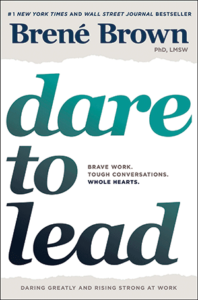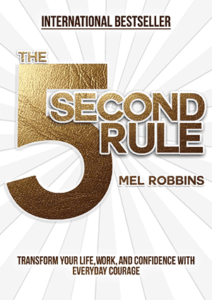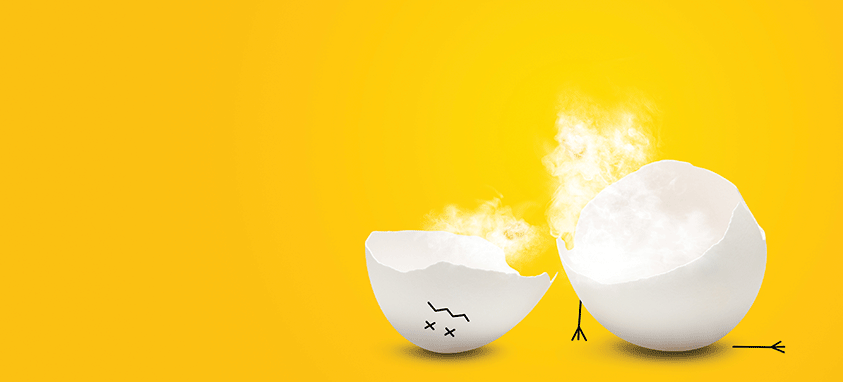Expert tips for managing stress on the road
When the World Health Organization recategorized burnout as a specific medical diagnosis, it was, in effect, putting event professionals—a job classification consistently rated as one of the most stressful on the Department of Labor Standard Occupational Classification System, right behind emergency responder and attorney—on notice that the challenges they face are dangerous and the solutions need to be just as serious.
We can’t control whether speakers will show up on time or attendees will tell us in advance if they have severe carpet allergies, but we can control how we react. “Event professionals wear their stress like a badge; that is not a requirement of the job,” said Lee Papa, who facilitates Mindfulness Lounges at meetings across the country.
Everyone reacts to stress differently. An understanding of the causes, symptoms and costs of burnout is the first step in finding the solution—even if that relief is unique to each person.
Smart Meetings asked the experts for tips on dealing with the constant sense of urgency and need to adapt to changing situations that mark a career focused on bringing people together.
Stress Tests
We don’t need to tell you that traveling and managing events takes a physical and emotional toll. Cynthia Scherer, a corporate and executive wellness coach in Seattle who previously led sales and marketing efforts at The Plaza, a Fairmont managed hotel in New York City, has seen the pressure put on event professionals up close.
“Events today are magical and mesmerizing spectacles designed to surprise and delight the attendees, along with all who join vicariously through the many lenses of social media,” she said. What people may not know is that what happened behind the scenes can be grueling and chaotic, fueled by high expectations, ever-changing details and moving deadlines with no room for error. “The true heroes are the event professionals who make it all happen,” Scherer said.
No matter how seasoned planners are and how much they prepare for all the “what-ifs,” with so many human beings involved, they have to think on their feet to turn unexpected moments into the most memorable ones, she observed. Working 18 hour-days without the basic comforts of three balanced meals and regular breaks, while dealing with factors out of their control, puts these warriors at high risk for burnout.
The result can be an increase in mistakes with critical details missed as stress starts to take a toll on event teams. The workload can become so overwhelming that it’s difficult to know where to start, Scherer said. “A great cue to watch for is when things get quiet, and you find yourself and others cutting out the human side of interaction, not engaging in casual conversation, laughing together or having any fun,” she warned.
Being trapped in a hotel for days at a time, on top of the stress of having to be “on” for long stretches without relief, increases cortisol and adrenaline, which can
start to break down body tissue. “That causes a cascade of negative physical events,” explained Rachel Carlton Abrams, who is known as Doctor Rachel and
is the author of BodyWise: Discovering Your Body’s Intelligence for Lifelong Health and Healing. From high blood pressure and weight gain to burnout and depression, the cumulative effects of not meeting the basic human needs for sleep, nutrition, human connection, fresh air and processing time can be severe.
“We have big brains, so we perpetuate stress by overthinking,” Abrams said. That can lead to chronic stress and adrenal dysfunction. Planners may find themselves alternately wired and tired. Energy drops and it is hard to get through the day. When the reaction is a feeling of hopelessness, accompanied by disturbed sleep and the inability to enjoy things we normally do, those are symptoms associated with depression, she explained.
The highest rate of depression is for women is in their 40s through their 60s, Abrams reported. These are the ages when caregivers are dealing with teenagers, aging parents and their own maturing hormones, on top of careers and relationships. All of these conditions are stress factors.
No one is immune, however. Millennials are now reporting depression in higher numbers than any previous generation, according to University of Liverpool and University College London. Researchers found that 15 percent of young people studied had experienced levels of depression.
National Institute of Mental Health (NIMH) warns that while depression can happen at any age, it can co-occur with other medical illnesses, such as diabetes, and the side effects of those conditions can contribute to mental health problems.
No Shame
One reason stress can be a silent killer is that we are embarrassed to admit it is a problem. “Our culture says no one should be depressed; that is just plain ridiculous,” Abrams said. “We all feel sad at times; that is part of a normal life.” No one is happy all the time.
As event professionals know better than anyone else, human contact is the best way to improve lives. Having someone to talk to—a friend or a colleague—can make all the difference. Abrams warns that our instinct is to cut ourselves off just when we need connection the most. “It is when we feel the most shame that we most need to reach out,” she said.
Abrams suggested that when anxiety kicks in, the best thing to do is talk about what you are most afraid is going to happen. Fear of failure or embarrassment can trigger depression. Getting the reasons for the feelings out in the open is the first step in doing what she calls “adult maturation” work.
Dealing with these root causes is not a one-and-done situation, Abrams cautioned. It is an ongoing process of becoming more ourselves throughout our lives. “Depression is a sign calling on us to change, and until we deal with it, it won’t go away,” she said.
But taking the time to address the root causes of the pain can be easier said than done. In fact, according to NIMH, as many as 45 percent of mental health cases go untreated in this country, at a total potential cost of $147 billion per year in lost productivity and levels of heartache that can never be measured.
Author, researcher and storyteller Brene Brown expressed the universal nature of pain this way: “Everyone has a story or a struggle that will break your heart. And, if we’re really paying attention, most people have a story that will bring us to our knees.”
Sunshine Therapy
Abrams is not recommending that event professionals—or anyone for that matter—remove stress all together. “We would be boring without stress. But we need to balance it with some downtime so we can reach a homeostatic state and recover,” she explained.
Abrams is worried that popular culture tells people that if they are sad, they need to take a pill, a drink or a smoke. “What we need is someone to talk to, adequate sleep, exercise and better food.”
The antidote to temporary stress factors can be simpler than a regimen of mood-altering drugs, Abrams said. “Take a walk outside, go hiking, spend time in nature with trees and plants. It calms the nervous system and helps get the body get back into balance.”
Meditation, too, can counteract the negative effects of stress. Papa, the Mindfulness Lounge consultant mentioned at the top of the article, says she is “on a mission to shift the mindset of the meetings industry.” People are seeking relief by quieting the mind. Even though it seems simple, a person has to make the decision to surrender and allow the practice of being still, she said.
Wellness coach Scherer counts flexible schedules, taking days off after significant events, planning vacations around events (and planning them far enough in advance that they actually happen) and having fun while working as burnout prevention strategies. She advocates for a “work-life blend” rather than balance to encourage leaders to take time for themselves. “This will allow them to uncover their ultimate potential as a leader of their own life and of others,” she said.
Stress resilience training for managers can help employees understand how to show up at their best no matter the circumstance. “When leaders learn how to make their stress work for them, not against them, they can shift mindset and reframe negative perception on the spot, which helps others to do the same,” she said.
Beyond Burnout
Much of the medical literature on burnout identifies symptoms similar to depression, a condition that can be debilitating, recurring and, for some, fatal. Abrams stresses that major, chronic depression is different than fleeting reactions to stress. “It is a lifelong illness the same way Type 1 diabetes is; it is part of who a person is and may require ongoing treatment or medication,” she said.
When reports started showing up on news feeds last year that Anthony Bourdain, a respected voice in the hospitality and reality television worlds, had committed suicide, it was a harsh reminder of how prevalent and hidden the disease can be.
Abrams points to tragic celebrity deaths as reminders that mental health is a critical area of self-care that should never be neglected. “When it comes to chronic mental health, the suffering is intense and it can happen to anyone,” she says.
Candid Words
Motivational experts are not immune to negative thoughts. Some of the most popular voices on the speaking circuit have devoted time and ink studying constructive ways of dealing with the very human effects of stress.
Brene Brown, author of Dare to Lead: Ask for Help:
 You would think the universal nature of struggle would make it easier for all of us to ask for help, but in a culture of scarcity and perfectionism, there can still be so much shame around reaching out, especially if we’re not raised to understand the irreducible nature of human need.
You would think the universal nature of struggle would make it easier for all of us to ask for help, but in a culture of scarcity and perfectionism, there can still be so much shame around reaching out, especially if we’re not raised to understand the irreducible nature of human need.
We can encourage our children to ask for help; however, if they don’t see us reaching out for support and modeling that behavior, they will instead attach value to never needing help. We also send strong messages to the people around us, including our children, friends and employees, when they ask for help, and in return, we treat them differently—as if they are now less reliable, competent or productive.
I think we do this because we want to believe that if you do everything you’re supposed to do, this will never happen. Just like cancer, it unfortunately doesn’t work that way.
To know pain is human. To need is human. And no amount of money, influence, resources or sheer determination will change our physical, emotional and spiritual dependence on others.
Need is the most beautiful compact between humans.
Rachel Hollis, author of Girl, Wash Your Face and former event professional:
 As an adolescent, [my brother Ryan] was my protector. He advised me on how to handle a bully, how to throw a punch and how to thread a ramen noodle in through my nose and pull it out through my mouth. He wasn’t necessarily better or worse than anyone else’s big brother, but he was mine and I loved him.
As an adolescent, [my brother Ryan] was my protector. He advised me on how to handle a bully, how to throw a punch and how to thread a ramen noodle in through my nose and pull it out through my mouth. He wasn’t necessarily better or worse than anyone else’s big brother, but he was mine and I loved him.
He was my big brother until I was about 12 years old, and then his mental illness took over almost completely. He would take his own life before I turned 15.
It’s heavy, I know, the reality of that sentence. But here I am, admitting the worst of the worst, the ugly truth of my brother’s disease and its near-destruction of the family it left behind. I’m talking about it 16 years after his death because when it comes to mental illness, nobody else is. Because people are afraid to talk about it, to admit to its existence in their own lives or in the lives of their loved ones who aren’t getting themselves the help they need.
Dr. Martin Luther King, Jr. said, “Our lives begin to end the day we become silent about things that matter.”
This topic matters. It matters to me, it mattered to my brother, it matters to my friend and her family and the young man they’re trying desperately to help through this. It matters to the millions of people who are battling their inner demons every day with no one to turn to for support.
We need to start a discussion.
Mel Robbins, author of The 5-Second Rule:
 Depression is real. You aren’t alone if you suffer from it, and you need to know it is treatable.
Depression is real. You aren’t alone if you suffer from it, and you need to know it is treatable.
You also need to know that despite how you feel right now, you can learn to how to live a very happy and successful life even though you are struggling. Know that there is a difference between what you feel and what you push yourself to do.
The real challenge with depression is that it makes you feel like you can’t or don’t want to do what you need to do to heal. Depression is lying to you. No matter how depressed you feel when you wake up, you can push yourself to get out of bed. No matter how lethargic you’ve become, you can push yourself to go for a walk, get to the gym or show up at spin class. No matter how much ice cream soothes your sadness, you can choose to eat healthier foods. No matter how much you feel like giving up or there’s no point, you can choose to push forward.
And, no matter how alone you feel, that’s a lie, too. You are not alone and help from a professional or a family member is one phone call away. Depression lies when it convinces you that you can’t.
You are capable. You do have a choice It may feel like you don’t, but you always have a choice to push past the lies that depression tells you and take a step forward. You can do hard things.
Definition of Burnout

The International Classification of Diseases (ICD-11) is the World Health Organization’s handbook that guides medical providers in diagnosing diseases.
Burnout now appears in the ICD-11’s section on problems related to employment or unemployment. According to the handbook, one of the presenting symptoms is “feelings of energy depletion or exhaustion.” Others are “cynicism and depersonalization and reduced personal effectiveness.”
These red flags can show up individually and in combinations, and fluctuate over time, but they are signs that something needs to change. You might want to seek help from a doctor or a qualified mental health professional if you experience any of them, according to Dr. Susan Biali Haas, a medical doctor, author and coach.
Stress Recovery Toolbox
Executive coach Cynthia Scherer’s advice is to “take charge and recharge—just like your phone.” To be of the most service to others, event professionals have to take care of themselves, she said.
Scherer’s Toolbox for a Quick Recovery
Clarity Walk: Step away and get some fresh air to clear your head and let go of any emotions or build-up of tension that may be getting in your way.
Box Breathing: Breathe in for four counts, hold for four counts, out for four counts, hold for four counts, repeat.
Recharge Playlist: Listen to your “go-to” songs that calm you down and boost you up.
Hydrate: Drink lots of water. Dehydration can be toxic to the body.




